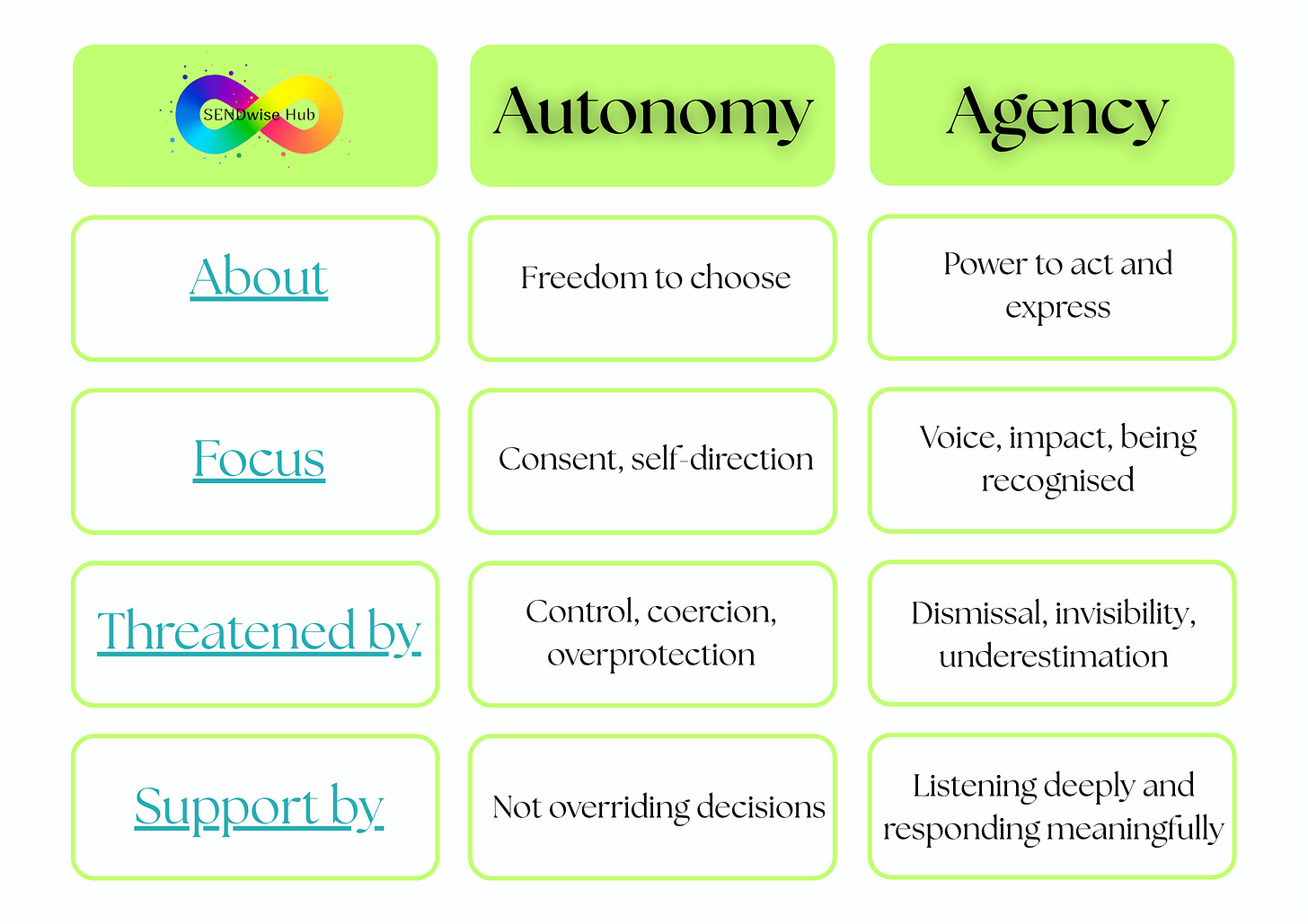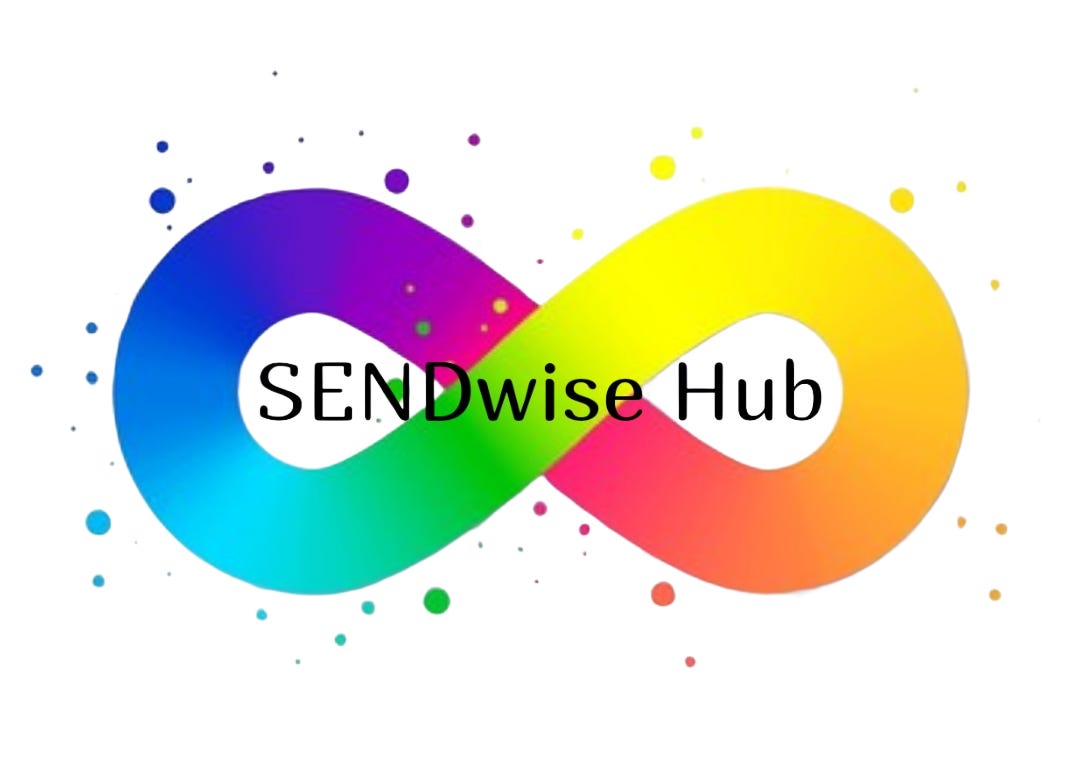Autonomy isn't the same as agency
Why understanding the difference matters in how we support neurodivergent people
Autonomy and agency are closely related and even though they are sometimes used interchangeably, they carry distinct meanings, especially in neurodivergent context or any conversation about empowerment, consent and support.
We talk about independence, decision-making and giving people control over their lives which matters deeply, but it's only one side of the equation. Because autonomy without agency still silences people and agency without autonomy can still trap them.
Autonomy says: “You get to choose.”
Agency says: “You’re allowed to matter.”
Autonomy is about freedom, the ability to say yes, no, maybe later and have that choice upheld. It’s the right to direct your own life, free from external control.
But agency is the means to express it. To act. To be heard. To be taken seriously. It means having a voice even if your actions or expressions don’t meet conventional expectations. Supporting agency means recognising that every person, regardless of age or communication style, has preferences and intentions worth honouring.
So how do we make this difference clear? Hopefully this infographic helps :
SENDwise Hub is a reader-supported publication. To receive new posts and support my work, consider becoming a free or paid subscriber.
Why does it matter and where do we go wrong?
You can have agency without full autonomy and you can be given autonomy without your agency being respected.
We say we’re promoting independence, while ignoring the emotional and practical scaffolding someone might need to make real, meaningful, informed choices.
We say “you can decide,” but don’t create conditions and environments where people are understood, believed and responded to.
We equate autonomy with being able to do everything alone : to plan, decide, execute and reflect, all without support. So when someone needs co-regulation, scripting, assistance with decision-making or extra time, we assume they lack autonomy and that’s simply not true.
Autonomy is about owning your path, even if someone walks alongside you.
We offer choices without true access when those options don’t align with someone’s needs, sensory profile or communication style. In these instances, they aren’t choices at all. Autonomy is the ability to shape the terms of engagement from the start.
We ignore different communication styles and preferences when we view anything but verbal output as a behaviour to be managed. Agency is already happening, the question is whether we’re noticing it.
We delay autonomy, assuming that it should be granted once the person has reached a certain milestone: when they’re verbal, when they’re more regulated, when they can manage themselves better and so on. Ultimately, no one should have to earn their right to be involved in decisions about their life. Agency and autonomy aren’t rewards for progress.
It’s more than just semantics.
Language shapes frameworks. Frameworks shape policies. And policies shape lives. We’ve seen what happens when words like independence, functioning and choice are thrown around without depth.. Autonomy becomes a privilege, agency becomes invisible and support becomes conditional.
Besides semantics, this is a dignity issue.
When we don't distinguish between autonomy and agency we miss the person who communicates “no” with their body long before they can through mouth words; we ignore the adult whose daily decisions are masked by burnout, scripting and shutdown and we reinforce the idea that only certain kinds of minds are capable of self-direction, when in fact, every person is capable of expressing needs, preferences, resistance, joy etc.
The difference between these words becomes the difference between assuming competence and requiring proof of it, offering support and enforcing control, building trust and expecting conformity and most importantly creating real access vs following a tickbox exercise.
Honouring both agency and autonomy means creating equity and making sure every person is recognised as someone who matters and someone who chooses, even if they need support to do so.
If we want to support neurodivergent people, we have to stop collapsing agency and autonomy into one neat category called independence - they’re not the same.
The Unasked Collection is starting on the 15th July for paid supporters only.
⭐ If you’re looking for digital and affordable resources, you can browse them here.
⭐ If you wish to support the neurodivergent community, come for a browse here.
⭐ If you’re on any social media, come join me on Facebook, Instagram or LinkedIn
.






